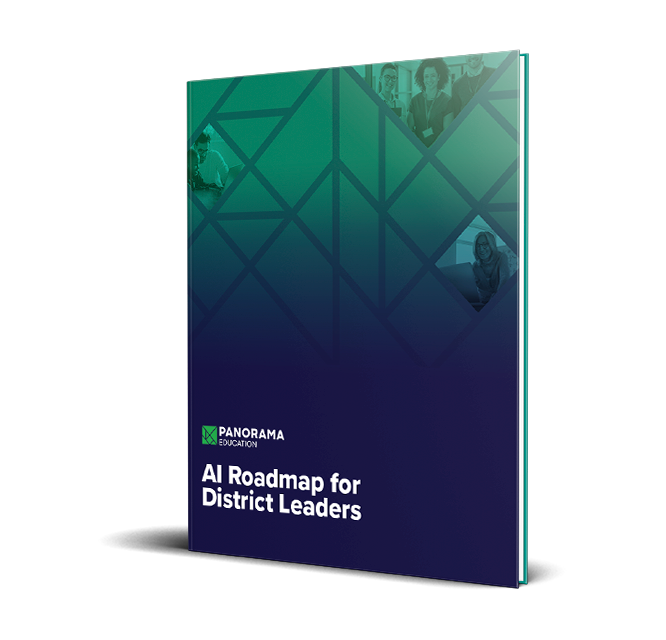School counselors are critical to students' success, providing academic, personal, and career development support. Research from the American School Counselor Association (ASCA) found that schools with a school counselor-to-student-ratio of 1:250 saw significantly improved SAT testing scores. The same study found that 69% of schools with K-12 counselors had graduation rates over 90%. Without counselors, only 45.8% of schools achieved that rate.
How School Counselors Can Help Students Succeed
While we know that school counselors are critical to overall student success, high caseloads mean counselors may be unable to track every student’s progress or get the full picture needed to support them effectively. In this blog, we’ll discuss solutions to this challenge—such as automated graduation tracking systems.
We’ll also explore how school counselors can help students navigate academic, emotional, and career challenges, and learn more about the innovative tools they can use to ensure success at every step.
Table of Contents
School Counselor vs. Guidance Counselor
How School Counselors Can Support Students
How School Counselors Can Support Students with Panorama Pathways
Who Is a School Counselor?
A school counselor is a certified professional who supports students’ mental health, social development, and academic performance. Here’s how school counselors typically guide students:
- Meeting with students individually to discuss academic progress
- Collaborating with teachers and staff to identify students who may need additional support
- Developing and implementing classroom topics on emotional regulation, study skills, or career exploration
- Conducting small group counseling sessions to help students improve peer relationships
- Coordinating with parents and guardians to discuss student progress, address concerns, and provide resources for supporting students at home
- Tracking student progress and maintaining records to ensure that each student is carefully monitored
As counselors tend to take on leadership roles in schools, they are essential to the success of any Multi-Tiered System of Support (MTSS). They provide targeted interventions at various levels to help students receive the academic, career, and life skills guidance they need.
While the responsibilities of school counselors remain consistent, their approach changes for each grade level. Below, we break down the unique roles counselors play at each educational level.
Elementary School
Elementary school counselors are an essential part of the broader educational team. They offer proactive support by working closely with staff, administrators, and families to deliver programs that help students succeed. Counselors collaborate with teachers and parents to identify early signs of academic or personal challenges, ensuring students receive the guidance they need to thrive in their learning environment.
Middle School
Middle school counselors play a critical role in guiding students through a challenging time of personal growth and exploration. They contribute by designing, implementing, and evaluating programs that support both the student body and individual needs. Middle school counselors assess academic and personal challenges, and they work on creating an environment where students build confidence and become capable learners.
High School
In high school, the primary role of school counselors is to prepare students for graduation and their careers. College and workplace readiness are also priorities, with counselors tracking graduation requirements and offering individualized support for course selection and post-secondary planning. Counselors also provide guidance on scholarships, financial aid, and professional development to help students be prepared for the next stage in their lives.
Another responsibility is crisis intervention, where counselors address urgent student issues such as mental health challenges, family concerns, or bullying. Counselors are key here, ensuring students are connected to appropriate resources.
School Counselor vs. Guidance Counselor
Many districts employ both “school counselors” and “guidance counselors,” and while there may be some overlap in duties, often these roles provide distinctly different support. A key differentiator is that school counselors provide holistic support for a student’s entire development, while guidance counselors tend to focus on helping students improve their academic performance or offer career guidance.
Here’s a quick summary of the differences between the two roles:
School Counselor
School counselors take a data-informed, proactive approach to assisting their students. Taking the big-picture into view, they build comprehensive programs to track and encourage students in academic and life skills across all grade levels.
School counselors often play a multi-faceted role in the lives of their students, acting as:
- Academic Advisors: Assisting with educational planning
- Social and Behavioral Mentors: Promoting personal development
- Career Guides: Helping students prepare for the future
- Crisis Counselors: Offering immediate assistance in urgent situations
- Program Leaders: Building inclusive support systems
- Student Advocates: Prioritizing a student’s well-being
- Collaborative Partners: Engaging with families and staff
Guidance Counselor
Guidance counselors primarily concentrate on providing academic and career-related advice, usually at the high school level. Unlike school counselors, their role is more specific, with an emphasis on preparing students academically and for their careers. Their principal responsibilities include:
- Academic Assistance: Helping students with their academics
- Supporting Students Individually: Holding one-on-one student meetings to identify and address issues in a safe space
- Career Guidance: Helping connect students with resources to start building a career
How School Counselors Can Support Students
Modern school counseling recognizes that student success depends on much more than school performance. While academics are important, a student’s life skills and mental well-being are equally critical to their overall development. This holistic view has transformed the role of school counselors, who now employ an evidence-based approach that focuses on supporting students across all the domains of their lives.
Research consistently demonstrates the positive impact school counselors have on student outcomes:
- School districts that invest in maintaining smaller student-to-counselor ratios have decreased chronic absenteeism and suspension rates.
- Schools with low student-to-counselor ratios report high post-secondary enrollment and English SAT scores.
- Students who meet regularly with counselors are less likely to have disciplinary issues.
Counselors can achieve these positive impacts by assisting students in various ways, including:
- Academic Support: They help students stay on track through tailored interventions and academic planning.
- Career Development: Counselors assist in career exploration and decision-making aligned with student strengths and interests.
- Crisis Prevention: They help identify potential issues, offering immediate support, while avoiding escalation.
- College Readiness: School counselors prepare students for the academic and personal demands of post-secondary education.
- Family Engagement: They build strong connections between school and home to support student goals.
- Equity Advocacy: Counselors ensure that every student has access to resources and opportunities, removing barriers to success.
How School Counselors Can Support Students With Panorama Pathways
The growing demands on a school counselor’s time and resources can make it difficult for them to provide the individualized attention every student deserves. To help school counselors, Panorama Pathways offers an integrated solution that simplifies counselor tasks, taking a more proactive and efficient approach to guiding students toward graduation and beyond.
By automating data management, simplifying progress tracking, and keeping graduation goals in clear focus, Panorama Pathways empowers counselors to spend less time on administrative work and more time directly supporting students.
With Panorama Pathways, counselors get access to a range of features, including:
- Automated Transcript Audits: Reduces manual work, ensuring that transcripts are error-free and up-to-date.
- Real-Time Progress Monitoring: Instantly identifies students at risk of falling behind, allowing for timely interventions.
- Integrated Data Dashboard and Reporting: Consolidates academic, attendance, and behavioral data for quick and effective counselor decision-making.
- Seamless Multi-System Integration: Connects with other school platforms to centralize student information.
- Early Warning System: Flags potential issues early on, giving counselors more time to respond effectively.
- Graduation Plan Management: Simplifies course progression tracking, ensuring students meet graduation requirements.
See how Panorama Pathways simplifies graduation tracking and student support by watching an on-demand demo







